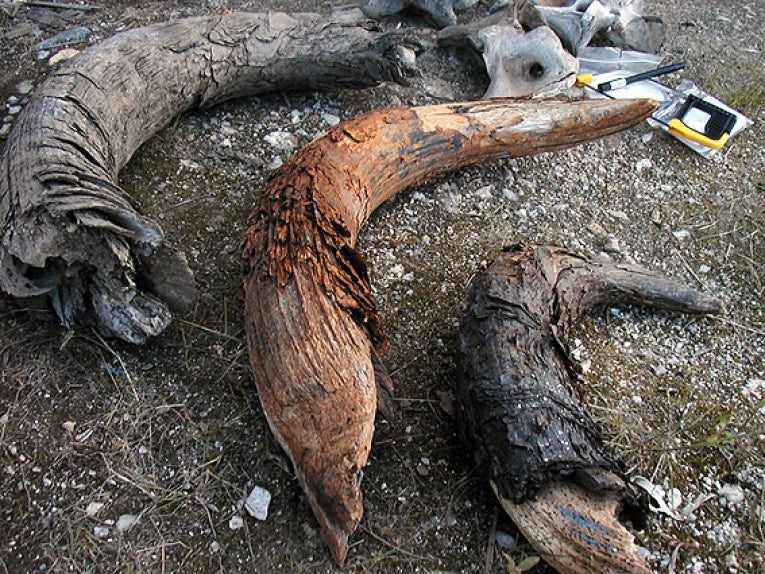Ancient bison bones may help scientists discover how animals adapt to rapid climate change. For the first time, researchers have been able to measure genetic modifications in the 30,000-year-old mummified bison bones.
The study, led by researchers from Australia's University of Adelaide with assistance from Sydney's Victor Chang Cardiac Research Institute, analysed 'epigenetic' modifications that turn genes on and off without changing the DNA sequence.
The researchers compared the bones from six bison bones discovered in permafrost in a Yukon goldmine with a 30-year-old mummified cow from New Zealand.
They found that 'epigenetic' changes can happen rapidly between generations without needing time for standard evolutionary processes.
Professor Alan Cooper, Leader of the project and Director of the Australian Centre for Ancient DNA, says: "Epigenetics is challenging some of our standard views of evolutionary adaptation, and the way we think about how animals use and inherit their DNA.
"In theory, such systems would be invaluable for a wide range of rapid evolutionary adaptation but it has not been possible to measure how or whether they are used in nature, or over evolutionary timescales.
"The climate record shows that very rapid change has been a persistent feature of the recent past, and organisms would need to adapt to these changes in their environment equally quickly. Standard mutation and selection processes are likely to be too slow in many of these situations."
Epigenetics specialist and report co-author, Dr Catherine Suter, of the Victor Chang Institute, says, "This is the first step towards testing the idea that epigenetics has driven evolution in natural populations."
Lead author, ACAD senior researcher, Bastien Llamas, who is an Australian Research Council Fellow, explains, "Standard genetic tests do not detect epigenetic changes, because the actual DNA sequence is the same.
"However, we were able to use special methods to show that epigenetic sites in this extinct species were comparable to modern cattle.
"There is growing interest in the potential evolutionary role of epigenetic changes, but to truly demonstrate this will require studies of past populations as they experience major environmental changes."
The bison bones were carbon dated and DNA was extracted from bone marrow tissue. Samples from modern cattle were used as control samples.
The study has been published in the online journal PLoS One, an inclusive, peer-reviewed, open-access resource from the non-profit publishing project, the Public Library of Science.










